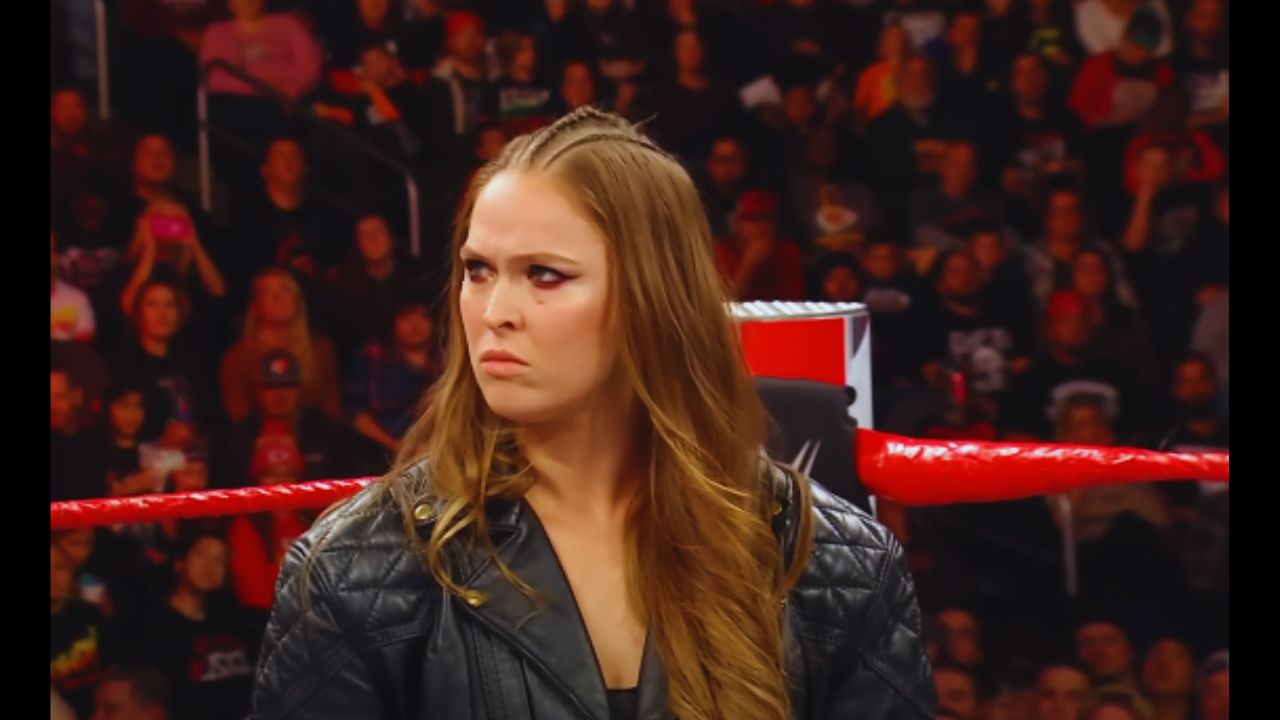A New Era for Women in Combat Sports
Ronda Rousey, a name synonymous with groundbreaking moments in fight sports activities, has these days spoken about the evolving panorama of women’s wrestling, especially after her departure from WWE. Known for her candid critiques and fiery personality, Rousey’s current feedback reflects both her frustrations and hopes for the destiny of women in wrestling.
Rousey’s exit from WWE came after a superb fit with Shayna Baszler at Summer Slam last year. Since then, she hasn’t shied away from expressing her grievances about her WWE experience. Her critiques have frequently been aimed at Vince McMahon, WWE’s former chairman, whom she accuses of stifling progress inside the women’s division.
Criticisms and Progress
In a candid interview with Scott Fishman of TV Insider, Rousey didn’t keep her lower back. She voiced her discontent with WWE’s former better-ups, Bruce Prichard and John Laurinaitis, using strong language to express her frustrations. Her remarks reflected a broader dissatisfaction with WWE’s dealing with girls’s wrestling all through her tenure. Rousey’s outspoken nature has painted her as controversial; however, it also underscores her ardour for raising women’s roles in fight sports activities.
Rousey’s critical comments are not simply grievances but also part of a broader talk about the development and representation of women in fight sports activities. Despite her absence from WWE, she’s kept an eye on the developments inside the industry, together with the shift towards greater visibility and admiration for girl athletes.
Women in Combat Sports
Rousey’s remarks emphasize a sizable shift in the perception of woman-warring parties. “I think ladies in combat sports everywhere are succeeding more than ever before due to the fact humans are taking them critically,” she told Fishman. This acknowledgment of progress displays a broader fashion in which female athletes are gaining the popularity they deserve throughout numerous combat sports activities, consisting of boxing, UFC, and wrestling.
The transformation in how women’s opponents are regarded isn’t just a private victory for Rousey; it is also a signal of progress in the industry as a whole. The old insult of “combating like a female” has been replaced with a new narrative that celebrates the talent and pleasure girls deliver to the sport.
Rousey noted a current submission with the aid of Natalya, showcasing that a sizeable portion of WWE suits were girls’s bouts. This, Rousey believes, is a testament to the strides being made toward identical representation. “I noticed a post from Nattie the opposite day that that they had a card in which 1/2 of the suits had been ladies’s matches. That was the ultimate hurdle for us to get to,” Rousey said.
The Future Under Triple H
Rousey’s departure coincided with a period of transition in WWE. Vince McMahon, who had a reputation for being a debatable figure in the evolution of women’s wrestling, stepped down. This trade in leadership introduced Triple H to the forefront, a discern Rousey perspective with optimism.
While Rousey recognizes that ladies’s suits nevertheless don’t receive the same quantity of time as guys’s, she stays hopeful about their destiny. “I’m certain the suits themselves didn’t get the time the men got for the maximum part, but these types of steps forward make it a lot less complicated for the ones after us to preserve to start where we left off as opposed to all the manner to the lower back,” Rousey commented. Her optimism about Triple H’s leadership and the course of WWE displays a hopeful outlook on its ability to similarly progress.
A Focus on the Future
Though Rousey’s evaluations have regularly been interpreted as bitterness, her present-day cognizance is on her non-public existence and other profession interests. Wrestling, for now, is a smaller part of her global, but her feedback reveals a deep-seated ardour for ensuring that the following era of woman wrestlers benefits from the development she helped push ahead.
Rousey’s insights into WWE’s ladies’s department and the wider combat sports panorama spotlight a period of sizable trade. As WWE navigates this new chapter without McMahon, the effect of those modifications could be seen in the evolving roles and recognition of lady athletes within the industry.
In the end, Ronda Rousey’s reflections on her WWE experience and the state of girls’s wrestling underscore both the challenges faced and the developments made. Her candidness, while debatable, brings to light the continued war for equality and respect in combat sports. As the enterprise maintains conformity, Rousey’s voice remains a critical part of the communication about the destiny of women in wrestling.




